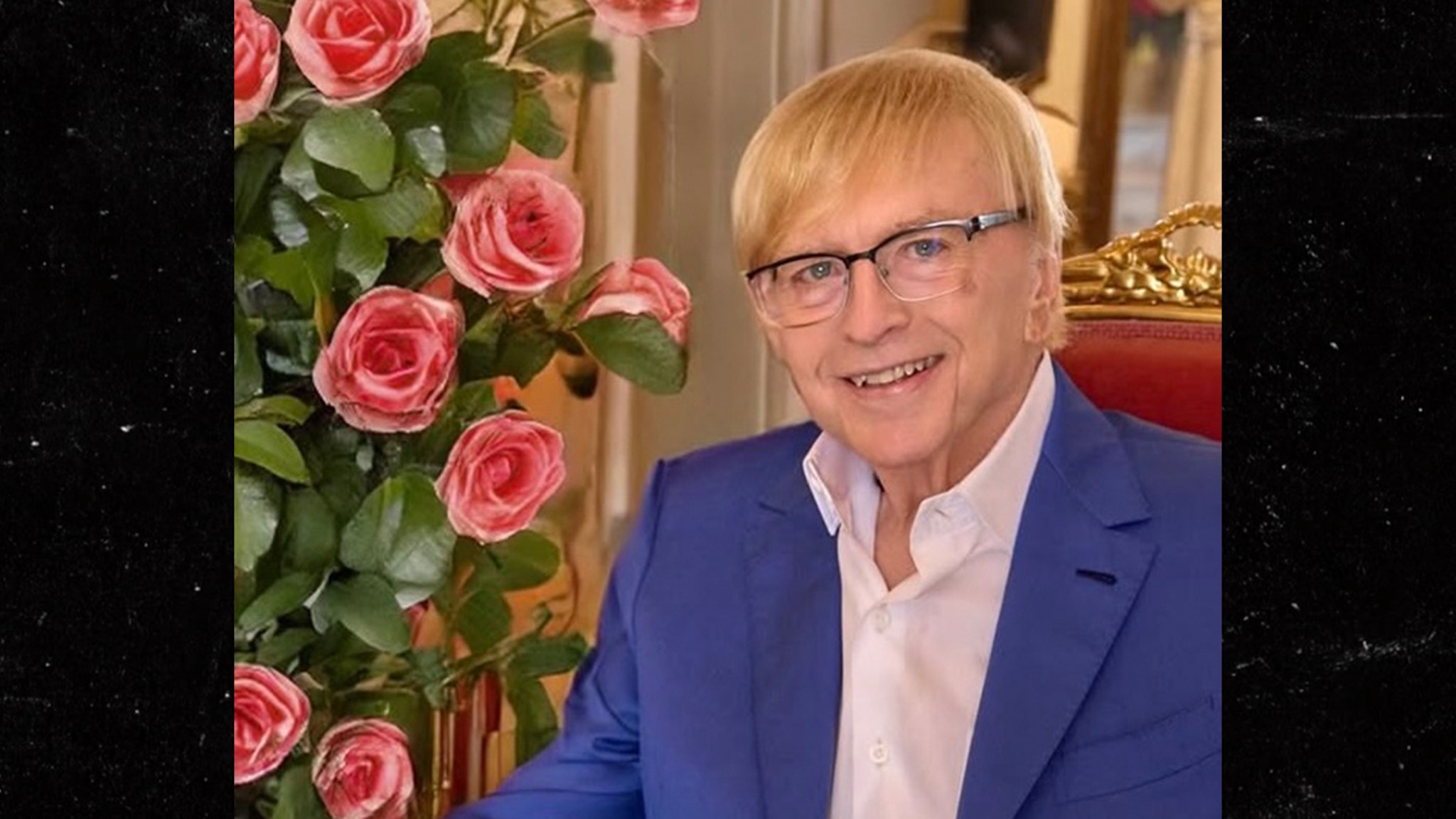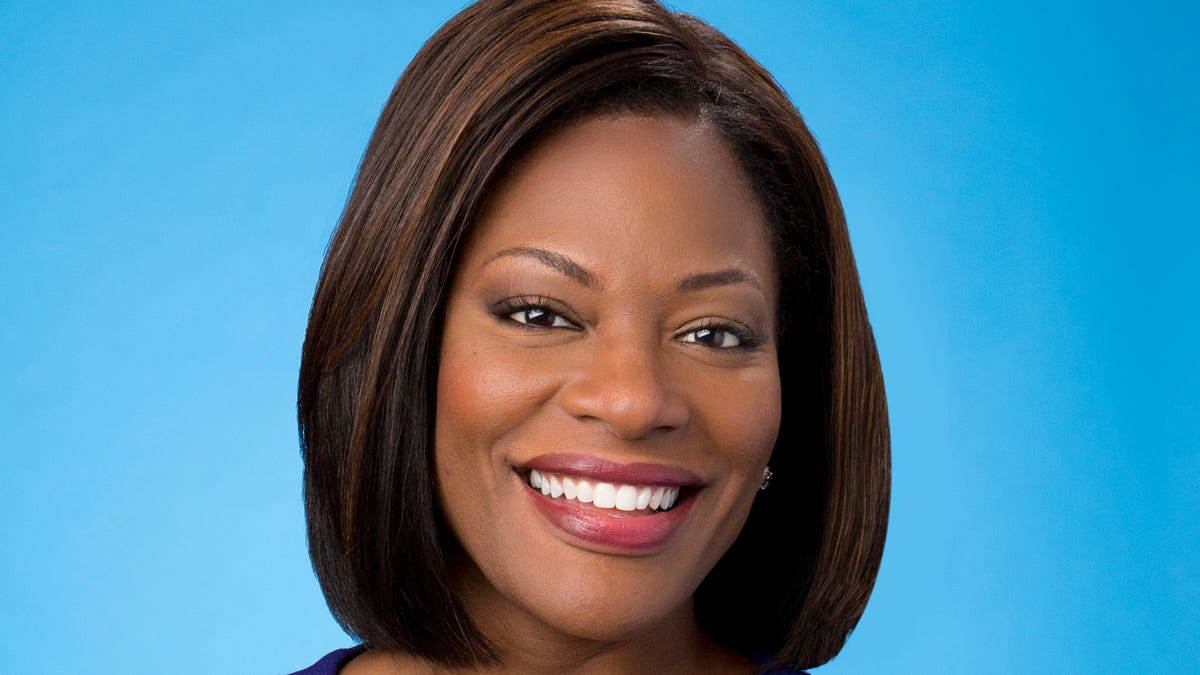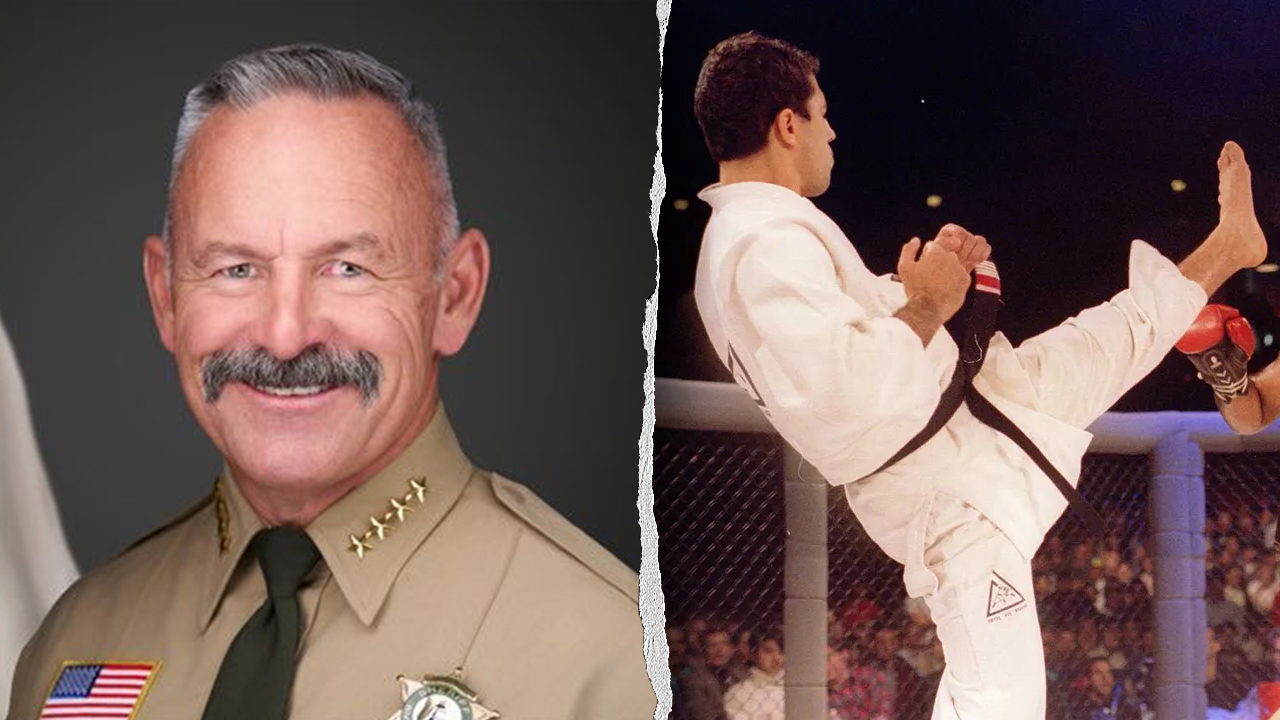Lifestyle
Duane Roberts, Inventor of the Frozen Burrito, Dead at 88

Duane Roberts
Billionaire Who Invented Frozen Burrito Dead at 88
Published
Duane Roberts — the billionaire businessman credited with inventing the frozen burrito — has died … TMZ has learned.
In a statement, his wife, Kelly J. Roberts says he passed away peacefully in his sleep Saturday night, just days shy of his 89th birthday. He was surrounded by family and their three dogs when he died.
Kelly called her husband “a visionary entrepreneur, devoted husband, and a man whose heart and generosity forever shaped our family and community.”
She continued, “I feel so blessed to have shared 35 wonderful years of marriage with Duane. Together, we built a beautiful life working side by side.” She shared Duane was an incredible husband and stepfather and a loving grandfather whose wisdom and warmth touched every generation of their family.

Fun fact — his stepchildren, Doug and Casey Reinhardt, both appeared on MTV’s “The Hills.”
After serving honorably in the U.S. military, he went on to revolutionize the food industry with the frozen burrito in 1956.

Beyond business, Duane was a proud philanthropist and developer … best known for restoring the Mission Inn Hotel & Spa in Riverside, California. His generosity also extended to animal welfare, education, veterans, and the arts.
Duane was 88.
RIP.

Lifestyle
Indie gems, a new ‘Predator’ and a boxing biopic are all in theaters

Sydney Sweeney plays boxing star Christy Martin in the film Christy, out this week.
Eddy Chen/Black Bear Pictures
hide caption
toggle caption
Eddy Chen/Black Bear Pictures
Something for nearly everyone at cinemas this weekend: A boxing biopic, an epic set in the Pacific Northwest, a new Predator flick and an anguishing postpartum story. Also quieter titles: a recreation of a 1970s interview with a celebrated New York art scene photographer, and a father-daughter drama from the filmmaker behind the 2022 standout The Worst Person in the World.
Christy
In theaters Friday
YouTube
Christy Martin, whose life story is featured in the new film Christy, grew up a coal miner’s daughter in West Virginia. After playing Little League baseball and basketball with the boys, she got a basketball scholarship to college. Then she began boxing in local amateur tough-man contests. She wore pink trunks, had a mean left hook, and enjoyed trash-talking her opponents. She kept winning fights, and was the first woman signed by promoter and boxing impresario Don King.
In the 1990s, Christy Martin was considered the most exciting and successful female boxer. She won titles, fought at Madison Square Garden and made it onto the cover of Sports Illustrated. She was later inducted into the International Boxing Hall of Fame. Martin says inside the boxing ring, she felt safe. But her private life was a different story. For two decades, she suffered her husband’s emotional and physical brutality. Actress Sydney Sweeney portrays Martin in the film, which is more than a rise-to-fame biopic: Christy depicts how Martin’s then-husband tried to make good on decades of threats, and how Christy survived being stabbed and shot by him in 2010. — Mandalit del Barco
Die My Love
In theaters Friday
YouTube
Director and co-writer Lynne Ramsay adapts Ariana Harwicz’s novel Die, My Love and gives Jennifer Lawrence the challenging role of Grace, a new mother in the throes of severe postpartum depression. Grace feels ignored in the isolated, rural family home she shares with her aloof partner Jackson (Robert Pattinson). Lawrence is a compelling presence and more than game to go through the pangs the part calls for, and she shares some strong scenes with Sissy Spacek, playing Jackson’s empathetic mother Pam. But the storytelling is too abstract and at a remove to fully lock in emotionally, and as Grace’s descent takes unsurprising turns, I was reminded of other, more successful works conveying this delicate subject matter — A Woman Under the Influence, for one. — Aisha Harris
Predator: Badlands
In theaters Friday
YouTube
In sequels and novels, comics and video games, various Predators have faced off against everything from Aliens to Batman to, recently, a very resourceful young Comanche woman, in 2022’s Prey. Predator: Badlands is the latest iteration of the franchise about an alien race that hunts things using all sorts of space-gadgets. In this version, Dek, the runt of his Predator litter, goes to the deadly planet of Genna to hunt down a hideous monster, because he’s determined to prove to his clan that he’s got what it takes to belong to the species of intergalactic badasses that audiences first met back in a 1987 Schwarzenegger movie. This Predator, played by Dimitrius Schuster-Koloamatangi, is aided by the top half of an abandoned robot named Thia, played by Elle Fanning. — Glen Weldon
Peter Hujar’s Day
In limited theaters Friday
YouTube
Writer and director Ira Sachs’ character-portrait two-hander will likely sound stagy and static, but it turns out to be not just resonant, but surprisingly cinematic as played by Ben Whishaw and Rebecca Hall. Sachs is recreating an interview that writer Linda Rosenkrantz recorded with photographer Peter Hujar on Dec. 19, 1974, for a never-published book about the daily lives of artists. The two were friends, and she asked him to relate in detail his activities of the day before. The original audio tape was lost, but a typewritten transcript of the interview lived on, donated by Rosenkrantz to the Morgan Library and Museum in New York City. It was published as a book in 2021.
The film’s recreation finds Hujar, fidgeting and chainsmoking as he namedrops casually about members of the 1970s downtown art scene — Susan Sontag, Lauren Hutton, Bob (Robert) Wilson, Fran Lebowitz, William S. Burroughs — to regale Rosenkrantz, who is comparatively laconic. The most sustained (and most amusing) anecdote begins with Hujar debating whether to wear his red ski jacket or a more bohemian coat to shoot Allen Ginsberg for The New York Times. He decides on the jacket, and regrets it as he heads to Ginsberg’s apartment for the shoot. The beat poet proves a difficult, testy subject, but Hujar gets the shot he needs. Then he buys liverwurst for a sandwich, develops the photos in his darkroom, has a few conversations, lets a friend whose hot water isn’t working take a shower. It’s all minor key, but thoroughly engaging, somewhat in the manner of Louis Malle’s My Dinner with Andre, or perhaps the less formal artists-gabbing films of Andy Warhol. The director lets daylight fade to a candlelit evening meal as the minutia of Peter Hujar’s Day becomes an understated aria for Whishaw, and a spoken-word concert both for Hall’s active listener — and for the movie audience. — Bob Mondello
Sentimental Value
In limited theaters Friday
YouTube
Joachim Trier’s eloquent drama centers on the two long-neglected daughters of a film director (Stellan Skarsgård) overly caught up in his career. Nora (Renate Reinsve, the star of Trier’s The Worst Person in the World) is suffering a case of stage fright when we meet her, possibly because she knows her father won’t show up. Her opening night will end in triumph with her sister Agnes (Inga Ibsdotter Lilleaas), an academic and former child performer in their father’s biggest artistic triumph, present to back her up.
Shortly after, at their mother’s funeral, things are the other way around — Agnes a basket case and Nora the strong one — when dad shows up, not to mourn the wife he left long ago, but to drop off a script he’s written for Nora. She angrily turns him down, and he reluctantly casts a visiting American star (Elle Fanning), having her alter her hair color to match Nora’s. Trier anchors the film in the ornate Victorian home that’s been in the family for generations. If its walls could talk, they’d tell of mom dying by suicide, the girls growing up, and dad’s new movie, which is set at the home, almost incestuously. The dynamics are fraught, the performances as understated as they are heartbreaking. And the plot, which keeps you guessing up to the final moments of the final scene, is riveting. — Bob Mondello
Train Dreams
In limited theaters Friday; streaming on Netflix Nov. 21
YouTube
The grandeur of the Pacific Northwest, and the irrevocability of change, love, memory, cruelty and heartbreak all come together in Clint Bentley’s gorgeous historical drama set in the early 20th century. It’s the age of the steam locomotive and westward expansion, centered on an intimate portrait of Robert Grainier (Joel Edgerton) a taciturn day laborer and logger who meets Gladys (Felicity Jones), the love of his life and the mother of a daughter he seldom sees, since he’s forever off working to support them. Grainier is passive, amazed, and often bewildered in a story crammed with incident — a Chinese coworker tossed off a bridge in a fit of anti-immigrant pique, a felled tree killing three loggers, a comet streaking in the night sky, memories made and lost, stones laid out in a square to mark the future walls of a log cabin, a forest fire laying waste to dreams. It’s breathtaking, with Terrence Malick-esque visuals and wrenching emotions. — Bob Mondello
Lifestyle
The Strategies Transforming Fashion and Beauty’s Customer Experience

Lifestyle
A child disappears from a playdate and it’s ‘All Her Fault’ in this gripping TV series

Sarah Snook plays Marissa, a mother desperately trying to locate her 5-year-old son (Duke McCloud), in a new Peacock thriller miniseries adapted from Andrea Mara’s novel All Her Fault.
Sarah Enticknap/Peacock
hide caption
toggle caption
Sarah Enticknap/Peacock
Sarah Snook has provided plenty of proof about how good an actress she is, and attention has been paid. She won an Emmy Award for her role as Shiv Roy, one of the manipulative wealthy siblings on Succession, and won a Tony Award for playing 26 different roles in her one-woman Broadway production of The Picture of Dorian Gray.
In her new Peacock TV miniseries, All Her Fault, Snook plays only one role — but right from the opening scene, it’s a dramatic and challenging one, and she pulls you right in. Snook’s Marissa Irvine is a wealthy wife with a 5-year-old son. We meet her, at the start of All Her Fault, running a seemingly mundane errand — picking up her son from an after-school playdate at the home of Jenny, one of the other classroom moms.
Except when Marissa arrives at the address that Jenny had texted to her, the woman who lives there isn’t Jenny. Her name is Esther, and she knows nothing about a playdate, or about Marissa’s son, Milo.

From there, things escalate quickly and frighteningly. Milo has an electronic tracker in his backpack, but it’s been disabled. When Esther uses the correct phone number to call Jenny, who’s played by Dakota Fanning, the news gets even worse. In the space of a few moments, Marissa goes from calm to justifiably panicked.
This is all before the opening credits. Megan Gallagher, who created and wrote the TV adaptation of Andrea Mara’s novel, ramps the tension to a fever pitch at the very beginning, then follows the narrative in two directions at once.
Part of All Her Fault moves forward, day by day, tracking the events as the police work with the family to try to locate Milo. But an equal part of the story is told in flashback — revealing, slowly and sometimes surprisingly, the mysterious pasts of many of the characters.
There are lots of characters, and they’re almost like a school of red herrings — at some point, it’s fair to suspect all of them of something nefarious. The detective on the case, played by Michael Peña, has his hands full, but Peña is up to it. Whether he’s interacting with suspects in an interrogation room or playing with his own young son at home, Peña radiates sensitivity and weariness, like Mark Ruffalo in Task.
The rest of the exceptional performances are turned in by women. Fanning’s Jenny becomes a key character. So does Abby Elliott, from The Bear, who plays Marissa’s sister-in-law. Her emotional range, and rawness, matches that of Snook — and the same can be said of Sophia Lillis, who plays a nanny who becomes increasingly central to the plot.
The drama’s focus on all these women is not coincidental. Told from their characters’ perspectives, their differing viewpoints and memories are crucial. So are the performances of the actresses who play them.
The title All Her Fault turns out to be relative, depending upon which “her” in the story is being blamed. Eventually, all of them are. But the women in front of, and behind, the camera in All Her Fault deserve nothing but credit. It’s a thriller, and a psychological drama, that works so well mostly because of them.
-

 Milwaukee, WI1 week ago
Milwaukee, WI1 week agoLongtime anchor Shannon Sims is leaving Milwaukee’s WTMJ-TV (Channel 4)
-

 News1 week ago
News1 week agoWith food stamps set to dry up Nov. 1, SNAP recipients say they fear what’s next
-

 Culture1 week ago
Culture1 week agoVideo: Dissecting Three Stephen King Adaptations
-

 Seattle, WA1 week ago
Seattle, WA1 week agoFOX 13’s Aaron Levine wins back-to-back Jeopardy! episodes
-

 Seattle, WA4 days ago
Seattle, WA4 days agoESPN scoop adds another intriguing name to Seahawks chatter before NFL trade deadline
-

 Education1 week ago
Education1 week agoOpinion | New York City Mayoral Candidates: Who Would Be Best?
-

 San Diego, CA1 week ago
San Diego, CA1 week agoAdd Nick Hundley, Ruben Niebla to list of Padres’ managerial finalists
-

 Business6 days ago
Business6 days agoCommentary: Meme stocks are still with us, offering new temptations for novice and unwary investors













